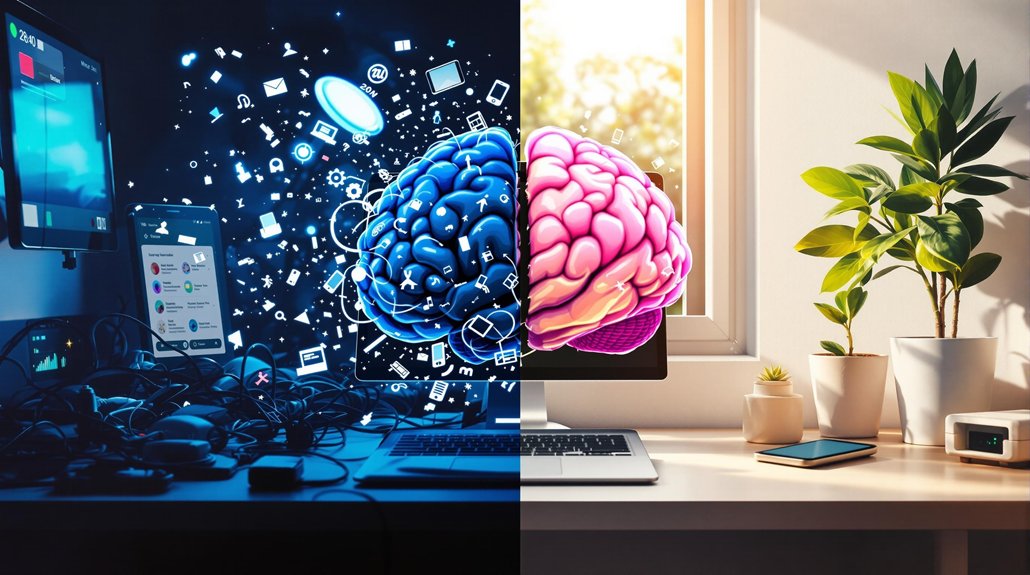Research suggests basic phones may help reverse cognitive damage caused by smartphones. Studies show switching to simpler devices reduces overall usage by about 25%, improving focus and memory. Excessive smartphone use shrinks gray matter in brain regions responsible for self-regulation, while taking digital breaks improves attention spans to levels comparable to being 10 years younger. Users report less anxiety, better sleep, and improved mental health when limiting internet access. These benefits extend beyond the devices themselves.
While smartphone technology continues to advance, researchers are uncovering alarming connections between excessive digital device use and cognitive decline. Studies show that overusing smartphones can impair memory, attention, and focus. Our attention spans have reportedly decreased from 12 seconds to less than 8 seconds in just 13 years, largely due to constant digital engagement.
Our digital addiction is shrinking our minds, with attention spans plummeting as smartphone use escalates.
The effects go beyond basic cognitive functions. Heavy smartphone use correlates with higher levels of anxiety, stress, and depression. Blue light from screens disrupts sleep patterns, while the constant flow of information creates mental overload. Social isolation increases as face-to-face interactions decrease, leaving many people dependent on digital validation.
Scientists have found that smartphone addiction changes how our brains work. It’s linked to reduced gray matter in areas responsible for self-regulation and decision-making. The habit of constantly checking notifications and multitasking interferes with our ability to concentrate and remember information. This parallels concerns in healthcare where diagnostic accuracy improves 5-10% when AI tools reduce information overload for medical professionals.
The good news is that these effects appear reversible. Research suggests that reducing internet use can improve sustained attention to levels comparable to being 10 years younger. In controlled experiments, participants who took two-week breaks from internet use showed enhanced cognitive performance and reported feeling better overall. A Canadian study demonstrated that participants who blocked internet access on their phones experienced mental health improvements that exceeded the effects of antidepressants.
Basic phones may offer a practical solution for those concerned about digital brain damage. These simpler devices typically limit users to calls and texts, eliminating the endless scroll of social media and constant notifications. Studies indicate that switching to basic phones reduces overall device usage by approximately 25%.
Users of basic phones report improved focus, better social interactions, and decreased stress levels. Without internet functionality, people experience less information overload and can better organize their thoughts. The simplicity of these devices encourages mindfulness and natural attention restoration. Even the mere presence of smartphones can reduce cognitive capacity and working memory, suggesting that physically distancing yourself from your device is beneficial.
For those worried about smartphone-related cognitive decline, basic phones represent a middle ground between total disconnection and constant digital immersion. They maintain essential communication while potentially reversing the negative effects of excessive smartphone use on brain health.









